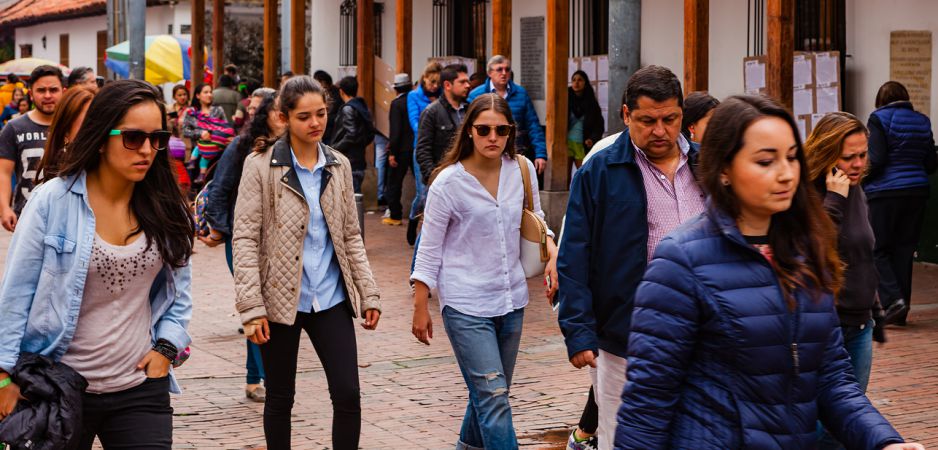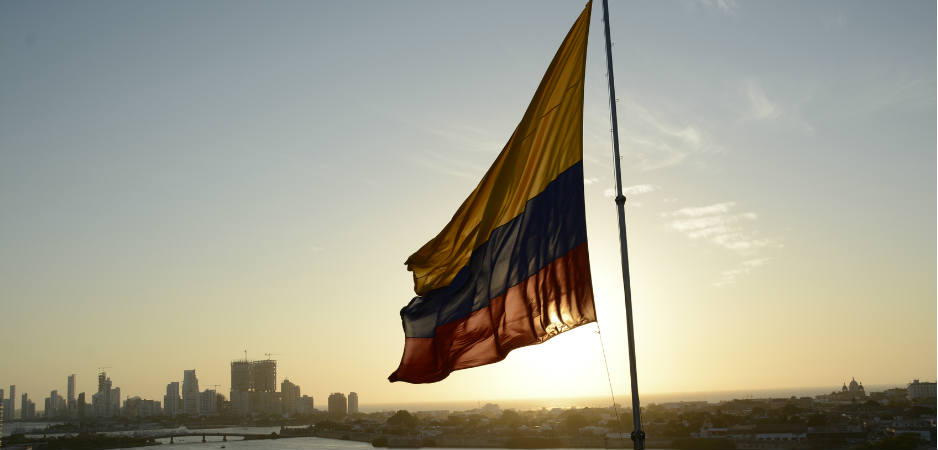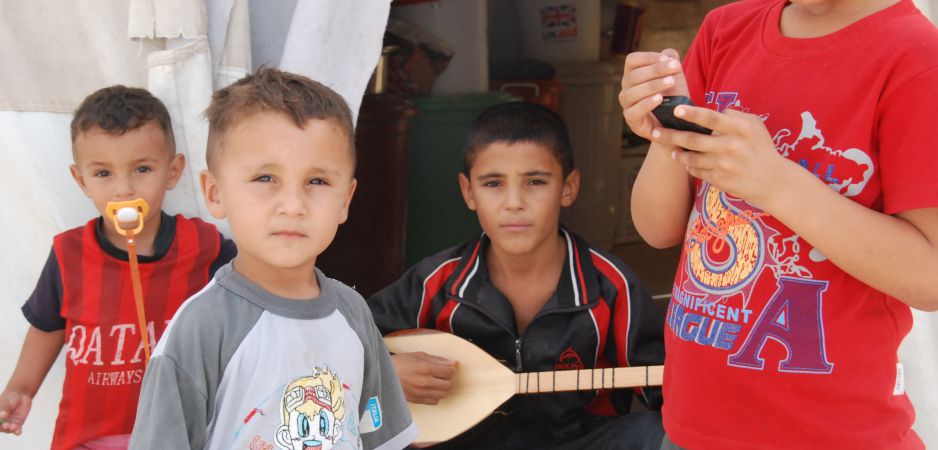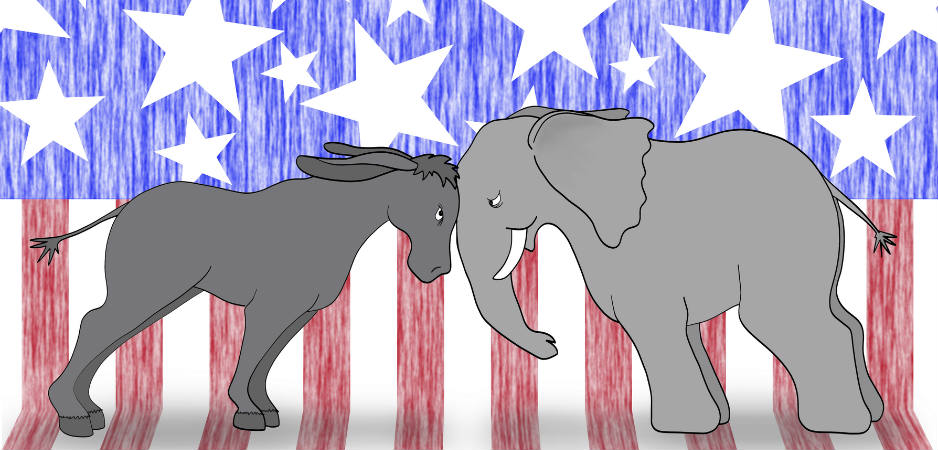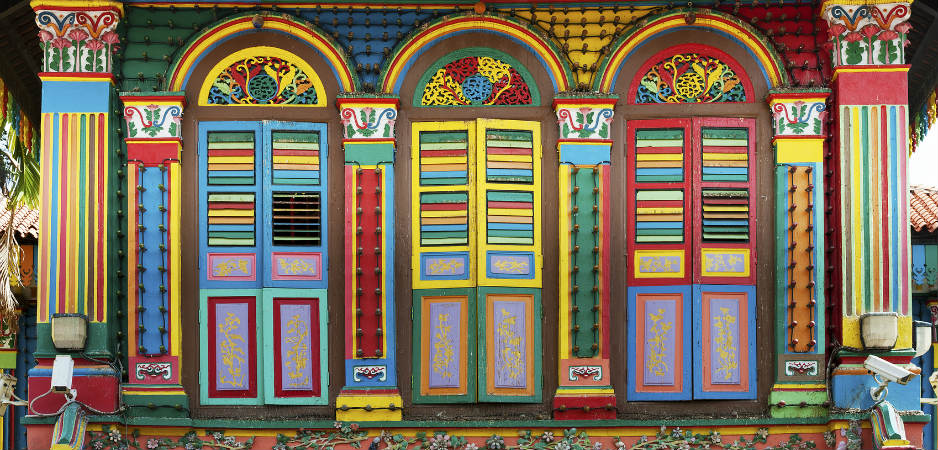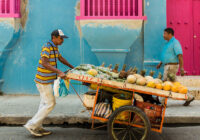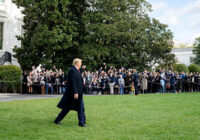The shock results of the referendum reflect deep divisions in Colombia and raise questions over whether referendums are the best way to achieve peace in divided societies.
In the year of the Brexit referendum, Colombians rejected a landmark peace deal with 50.2% voting against it. This referendum was held on October 2, Mahatma Gandhi’s birthday. This is not quite the present that the old man would cherish. So, what is going on?
In the September 4 edition of The World This Week, this author delved into the history of the Colombian conflict in some detail. For over a century, this tortured land has been blighted by violence and strife. From the Thousand Days’ War of 1899-1902 to la Violencia of the 1940s and 1960s to the more recent insurgency of Fuerzas Armadas Revolucionarias de Colombia, or FARC, this Latin American country of over 48 million has experienced almost incessant civil war.
Like other Latin American countries colonized by the Spanish, Colombia remains a deeply unequal society. This author has pointed out earlier that Latin America is the world’s most unequal region, with the richest 10% owning 71% of the total wealth. In the words of Sergio Fajardo, the former governor of Antioquia, a region made famous by drug lord Pablo Escobar, “with the exception of Haiti, Colombia is the most unequal country in Latin America, and Antioquia is the most unequal region in Colombia.”
Two centuries ago, none other than Simon Bolivar was complaining about the “aristocracy of rank, office and wealth” that regarded “the lower classes as their perpetual serfs.” Fajardo’s comments echo Bolivar’s and Jean-Baptiste Alphonse Karr’s words, plus ça change, plus c’est la même chose—the more things change, the more they stay the same—ring eerily true. To add salt to the wound, inequality in Colombia is combined with a culture of flagrant illegality and rampant corruption. As if this was not enough, the trafficking of narcotics and the unending guerilla conflict have combined to severely sunder the country’s social, political, economic and cultural fabric.
Clearly, the status quo in Colombia is untenable. So, why did Colombians vote against the peace deal?
As the vote demonstrates, the country is deeply divided on the issue of a peace deal with FARC. The issues are complex and the devil lies in the details. Like all deals, this peace deal was imperfect. Many Colombians detested the special treatment for FARC guerrillas. They believed that the creation of a new law above the law of the land to deal with the guerrillas was simply unacceptable.
The most vigorous opponents of the agreement such as former President Álvaro Uribe viewed the deal as capitulation to FARC. They claimed to want peace but they could not accept impunity. As is well known, Uribe’s father was murdered in 1983 and he has always blamed FARC for it. Others have also suffered from the brutality of FARC whether it is killings, kidnappings, explosions, extortions, threats or other forms of violence.
As this author has explained earlier, FARC was born after the brutal suppression of reformist liberals during la Violencia. As in other parts of Latin America, Uncle Sam played a big role in creating the conditions for the birth of FARC. Lauchlin Currie, yet another American economist, deemed that Colombia needed industrial agriculture to supply products to the United States and inaugurated the Accelerated Economic Development (AED) policy. To implement it, legislators drafted a new law providing for the “efficient use of the land.” This law was used by the state to dispossess hundreds and thousands of families of their land.
Under Currie’s infamous AED policy, the state effectively acted as Robin Hood in reverse. It robbed the poor for the rich. Then it used taxes collected from the poor to give subsidies to the rich. Cattle ranchers and big farmers profited, while peasants and laborers suffered enormously. Even the right-leaning Hoover Institution of Stanford University published a book where Bruce Michael Bagley concluded that “subordinate ethnic (Indians, Blacks) and class (peasants, rural workers, the urban poor, and segments of working and middle classes) groups” got shafted by Currie’s eminently humane policy.
Such oppression and exploitation inevitably led to a violent reaction. Two idealistic organizations emerged, both of them finding inspiration in the bearded prophet Karl Marx: Ejército de Liberación Nacional (ELN) and FARC. Their goal was to fight the good fight for land reform and greater equality. However, guerrillas like philosophers need to eat. They also need to buy guns to fight their good fights. Both FARC and ELN degenerated into armed gangs that lived off extortion and trafficking narcotics. As they tasted power, the guerrillas proved only too human. They shed blood, often gratuitously, and acquired wealth, not infrequently with much cupidity.
Colombia has since been caught in the crossfire between men in guns offering either order or revolution. All parties to the conflict have their hands soaked in blood. As a result, the peace talks that began in November 2012 in the Cuban capital Havana were protracted, tortuous and charged. After all, if Colombia was not such a deeply polarized country, it would not have experienced so much civil war.
 As mentioned earlier, the charge against the peace deal was led by Uribe. This is the man who decimated FARC when he was president and, in some ways, paved the path for the Havana talks. For Uribe, FARC’s political participation and amnesty from justice were thin red lines that he was unwilling to allow his country to cross. For him as for many others, this was not a fair peace. This was peace at all costs. Even as erstwhile rivals such as Cuba and the US were cheering the deal on, many Colombians could not swallow it.
As mentioned earlier, the charge against the peace deal was led by Uribe. This is the man who decimated FARC when he was president and, in some ways, paved the path for the Havana talks. For Uribe, FARC’s political participation and amnesty from justice were thin red lines that he was unwilling to allow his country to cross. For him as for many others, this was not a fair peace. This was peace at all costs. Even as erstwhile rivals such as Cuba and the US were cheering the deal on, many Colombians could not swallow it.
Of course, in such stories the political and the personal are often intertwined. Uribe has a ferocious rivalry with Colombian President Juan Manuel Santos, who not too long ago was Uribe’s defense minister. It was under Uribe that Santos directed military firepower against FARC, shrinking their numbers from 20,000 to 7,000. Santos waltzing off as a peacemaking statesman might have been too much for Uribe to bear.
The referendum demonstrated that Colombia is deeply divided about the peace deal. Charged discussions in media and social media were proof of the fact that emotions were running high. The result was “a damn close-run thing” and, like Brexit, weather might have played a part. The coasts and outlying provinces voted for the peace deal, while those inland and nearer the capital voted against it. Rain lashed the coasts though, lowering voter turnout there. In fact, this author was informed by Colombian friends glued to the news that turnout in the entire country itself was a measly 38%. These factors certainly influenced the referendum result.
Other factors might have played a role too. Taxi drivers furious with Uber threatened to vote against the peace deal. Colombia is a deeply devout Catholic country that has centuries of prejudice against homosexuality. In April, the country’s highest court gave same-sex couples the right to marry. Santos supports same-sex marriage and Gina Parody, the minister of education, is openly lesbian. She has been in hot water over issues pertaining to la identidad de género—gender identity—and sexual orientation. A handbook that she was championing attracted the ire of many conservative voters.
Many conservative voters see Santos and Parody threatening the sanctity of the family. They are horrified at the mention of lesbian, gay and transgender communities. For them, conflating Marxists like FARC with lesbians like Parody was not that big a leap. They might have voted against the peace deal simply in protest. In any case, Santos’ had dismal approval ratings and was deeply unpopular in the face of a sluggish economy and a lack of jobs. This made a protest vote highly probable.
Interestingly, opinion polls got the referendum completely wrong. The media was disconnected from ground realities as well. Few saw the result coming and the rejection of the peace deal has sent shockwaves domestically as well as internationally. So, what changes now?
The answer is not much. First, the referendum choices might have been binary but the result is not. No one seems to be in a hurry to go back to war. Both FARC and the Santos government are likely to digest the results and try to push for a deal if not this one. Second, the shock referendum result adds to Colombia’s economic uncertainty. A tax reform is in the offing as oil revenues have fallen. Its future might be in question. The peace dividend and US President Barack Obama’s promised Paz Colombia $450 million assistance are also up in the air. However, the uncertainty is unwelcome but it not debilitating.
Colombia’s referendum result poses one big question though. Are referendums the right way to decide emotive issues, especially pertaining to peace?
The democratic answer is an unqualified yes. However, if people do not understand the complexity of a deal, if passion runs too high, if the people in power are too unpopular, if demagogues take center stage, if not too many show up to vote, and if victory or defeat is an impostor with a razor thin majority in a deeply divided society, then are referendums necessarily the best way forward?
*[You can receive “The World This Week” directly in your inbox by subscribing to our mailing list. Simply visit Fair Observer and enter your email address in the space provided. Meanwhile, please find below five of our finest articles for the week.]
A Polarized Referendum Puts Peace to the Test in Colombia
Voters will decide if the negotiated settlement ending decades of conflict with the FARC moves ahead.
As the sun was setting in Cartagena, Colombia, on Monday, September 26, thousands of national and international spectators, including dozens of world leaders and US Secretary of State John Kerry, gathered to bear witness to a sight that not long ago would have been unimaginable: Timoleón Jiménez, commander of the Revolutionary Armed Forces of Colombia (FARC), the country’s largest guerrilla group, signing a peace accord with President Juan Manuel Santos.
The agreement ends 52 years of armed conflict between the two groups that has cost over 220,000 lives and left over eight million conflict victims. As an international witness, I was swept up by the emotions of those around me. Flags waved in the breeze, groups of victims and children sang, and the sunset over the Caribbean seemed a harbinger for a new dawn of peace. Over four years of negotiations had… Read more
Beyond Business Plans: Women Entrepreneurs in MENA
Greater support for female entrepreneurship will help the MENA region achieve the Sustainable Development Goals by 2030.
The Middle East and North Africa (MENA), a region that is more often in the news for bombs and bullets than booming businesses, is experiencing a startup revolution. Nearly six years since the start of the Arab Uprisings, entrepreneurship is on the minds of those as young as 15. With unemployment and underemployment still being key factors in a region that sits on a powder keg, MENA youth are hungry to shape their own future. Alongside them, however, there is an even hungrier demographic that is having their aha moments: women.
Women entrepreneurs provide the MENA region with an economic opportunity. To understand the issue, it is important to look at the underlying problems. As this author and Casper Wuite explained in The Arab Uprisings: An Introduction, the key catalysts behind the revolts of 2010-11 included poor economic growth, inequality, unemployment… Read more
Yazidi Refugees Tell Their Story
Yazidi refugees reveal tragic and inspirational stories of surviving ethnic cleansing by the Islamic State.
The Yazidi people are an ethno-religious group with aspects of their religion entailing a mixture of Christianity, Islam and Zoroastrianism. They are monotheistic, worshipping one God, but their most holy religious figure is Sheikh Adi ibn Musafir al-Umawi, who meets all criteria of a prophet but is described by some Yazidis as only a saint. Their holy scripture includes Jesus, Mary, Adam and Eve, Moses, Muhammad and other prophets shared in monotheism.
The Yazidis have resided in northern Iraq/Kurdistan since Mesopotamian times, along with other communities in Turkey, Syria and Armenia. However, as with the Assyrian Christian population, they have been in significant decline due to centuries of persecution, discrimination and violence. According to their narrative, they are survivors of 72 genocidal campaigns against them. In August 2014, the Islamic State (IS or Daesh) conducted a brutal campaign of ethnic cleansing against the… Read more
Make America Debate Again: The Qualifying Round
In the first presidential debate, candidates failed to provide clues about possible political responses to any of the real questions about America’s future in the world.
Judging from the results of the first “Super Bowl of presidential debates” it would appear that the following three statements, if not true, are at least credible: Donald Trump is manifestly not qualified to be president; Hillary Clinton may not be qualified to be president; it isn’t clear what it really means for a person to be qualified to be president.
The first debate somewhat predictably contained very little substance. Instead it danced around the relative weaknesses of each candidate, reflecting the mood of the nation, which appears to be on the verge of deciding which candidate to vote against.
There is no set of established criteria concerning the qualification to be president other than being a natural-born citizen of at least 35 years of age. A lot of people, especially on… Read more
Singapore’s Road to Multiculturalism
What lessons can multicultural Singapore offer America in light of the latter’s ongoing racial and religious tensions?
Raw feelings over race and religion dominate the American political season. The talk is of walls and deportations to keep some out, “extreme vetting” for immigrants of a certain faith, and a debate over whose lives matter that is playing out in mindless violence on the streets.
The conflicting feelings over people of a different race, color or creed cannot, of course, be resolved to any one person’s or group’s satisfaction. But good answers to the divisiveness seem elusive. How can Americans see past their differences and get along?
As an American, I watch from afar where I live in Singapore, one of the most racially and religiously diverse nations in the world. This small country offers an approach. A national poll released a few weeks ago found most Singaporeans try to live out multiracial ideals and believe in meritocracy… Read more
The views expressed in this article are the author’s own and do not necessarily reflect Fair Observer’s editorial policy.
Photo Credit: Devasahayam Chandra Dhas
Support Fair Observer
We rely on your support for our independence, diversity and quality.
For more than 10 years, Fair Observer has been free, fair and independent. No billionaire owns us, no advertisers control us. We are a reader-supported nonprofit. Unlike many other publications, we keep our content free for readers regardless of where they live or whether they can afford to pay. We have no paywalls and no ads.
In the post-truth era of fake news, echo chambers and filter bubbles, we publish a plurality of perspectives from around the world. Anyone can publish with us, but everyone goes through a rigorous editorial process. So, you get fact-checked, well-reasoned content instead of noise.
We publish 2,500+ voices from 90+ countries. We also conduct education and training programs
on subjects ranging from digital media and journalism to writing and critical thinking. This
doesn’t come cheap. Servers, editors, trainers and web developers cost
money.
Please consider supporting us on a regular basis as a recurring donor or a
sustaining member.
Will you support FO’s journalism?
We rely on your support for our independence, diversity and quality.


